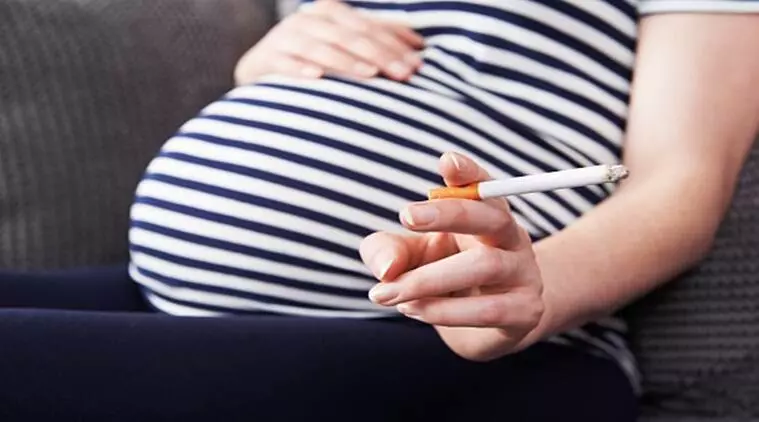World No Tobacco Day 2023: Smoking both active and passive smoking can have detrimental side effects on women’s reproductive organ.
Tobacco consumption is a can life-threatening habit. Smoking affects both those who directly inhale and those exposed to second hand smoke.
Tobacco smoking negatively affect lungs, heart, throat and neck, causing cancerous tumors, cardiovascular diseases, diabetes, and chronic obstructive pulmonary disease (COPD).
Read Also; Kush Tracey – I desire to have 7 kids and be a wife.
Moreover, smoking in women can also adversely impact their reproductive function. These occurs both in active and passive smoking as there are possible detrimental effects on reproductive organs and their function.
Particularly, in women it can result in various conditions related to ovaries, affecting their fertility, as well as the progress and outcome of pregnancies.
Today being World No Tobacco Day, we need a proper understanding on the impact of smoking on one’s ovaries and pregnancy.
Understanding the Impact of smoking on Ovaries
Let’s consider the following factors for proper understanding on how smoking compromises ovarian function.
- Hormonal imbalance
In the human body, the release of one hormone is regulated by secretion of another hormone. Chemicals in found in tobacco products such as cigarettes disrupt the function of glands responsible for reproductive hormones; this includes the thyroid, hypothalamus, pituitary, and adrenal glands. This disruption increases the levels of stress hormone called cortisol and the male hormone, testosterone, in females; spike in cortisol and testosterone have been linked to female infertility. Additionally, hormones such as oestrogen, progesterone, Anti-Mullein Hormone (AMH), and prolactin decrease in quantity, negatively impacting fertility.
Subscribe to Switch TV for more exciting content.
b) Ovarian and menstrual conditions
Hormonal imbalance caused by smoking is widely known to contribute to ovarian and menstrual cycle disorders. For example, elevated testosterone levels in females are associated with polycystic ovary syndrome (PCOS), characterized by irregular ovulation and menstruation, making natural conception challenging. Low levels of oestrogen and progesterone also lead to irregular menstrual cycles.
Read Also; Nannies Deserve to be Treated Well
c) Menopause
Menopause refers to the complete cessation of the menstrual cycle, typically occurring in the late 40s to 50s in females. It signifies the depletion of eggs available for ovulation. Smoking accelerates the rate at which eggs in the ovaries are damaged, diminishing their numbers and causing early menopause. After menopause, natural pregnancy is not possible.


Impact of tobacco smoking on pregnant women.
- Pregnancy complications
Female smokers have a higher risk of ectopic pregnancies where an embryo implants outside the uterus, spontaneous abortion, and miscarriage.
2. Foetal development
The carbon monoxide produced when smoking is known to pose harm to the central nervous system (CNS). Additionally, it hinders the development of the foetus in the uterus, resulting in restricted growth and a higher likelihood of premature birth. Moreover, smoking during pregnancy can cause damage to the lungs and brain tissues.
3. Genetic anomalies and birth defects
The negative impact of smoking on female egg quality can result in fertilized eggs with genetic abnormalities such as Down’s Syndrome, Turner Syndrome, and Klinefelter Syndrome. Female smokers are also more likely to give birth to children with cleft lip and/or cleft palate.
Subscribe to our YouTube channel Switch TV
4. Complications after birth
Children born to female smokers often have low birth weights, even when carried to full term. They are also at a higher risk of developing health complications and disabilities as they grow, including obesity, diabetes, asthma, and cardiovascular diseases.
It is crucial for women to limit or quit tobacco use, taking into consideration their own well-being and the potential health of their future children.
These measures not only enhance female reproductive health but also help preserve undamaged eggs for natural conception. However, in certain cases, achieving a natural pregnancy may prove challenging. It is important to note that the damage caused by tobacco to a person’s overall health can impact the success of such procedures




























